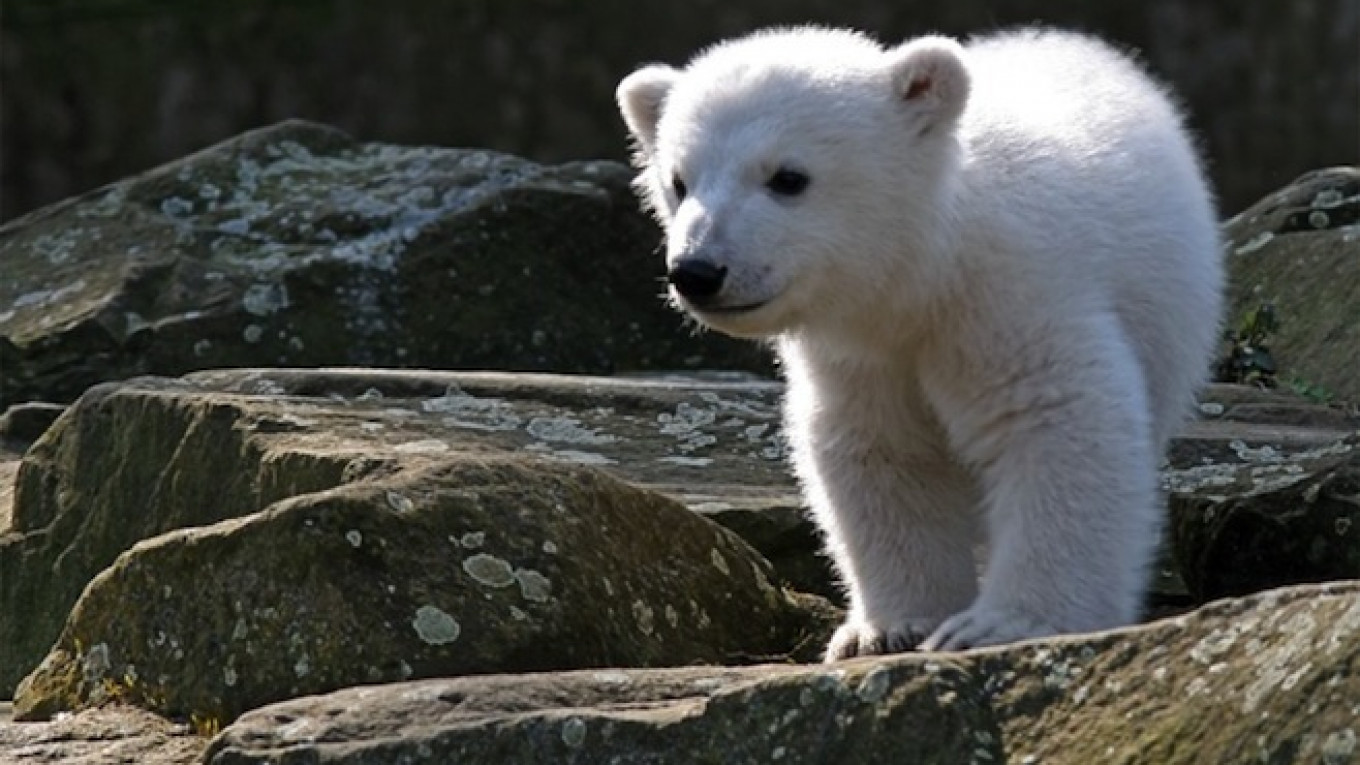The Russian army has reported rescuing a floundering polar bear cub, apparently lost or abandoned by its mother, not far from a protected "polar bear nursery" in the Arctic.
The cub was spotted by pilots flying a Mi-26 transport helicopter over the Arctic Ocean on the shores of Wrangel Island — a UNESCO World Heritage site that critics have accused the Russian military of endangering.
The polar bear cub allowed humans to approach it and gratefully ate some of the servicemen's army ration, spokesman for the Eastern military district Colonel Alexander Gordeyev said, Interfax reported Thursday.
"The exhausted and hungry cub reacted calmly to the approach of people, did not even try to run away," Gordeyev was quoted as saying. "Quite the opposite, after eating warmed-up kasha [Russian porridge] from the dry ration, it allowed itself to be loaded into a vehicle."
The crew named the cub Umka — after a cartoon polar bear character from a popular Soviet-era animation film — and took it to a nature reserve on the island, handing it over to a forestry official, the report said.
The Russian military is actively exploring Wrangel Island, a strict nature reserve, as part of the country's race for Arctic oil, holding military exercises on its shores and last month commencing the construction of a military base there.
Environmental groups have accused the military of violating Russia's domestic legislation and international obligations to protect the island.
Earlier this week Greenpeace Russia filed a complaint with the Military Prosecutor's General Office, with no response to date.
Wrangel Island's flora is uniquely diverse for a tundra ecosystem, with more than 400 species of plants, many of which are in danger of extinction.
It is also a popular breeding ground for the Arctic bear, earned it the nickname of the "polar bear nursery."
A Message from The Moscow Times:
Dear readers,
We are facing unprecedented challenges. Russia's Prosecutor General's Office has designated The Moscow Times as an "undesirable" organization, criminalizing our work and putting our staff at risk of prosecution. This follows our earlier unjust labeling as a "foreign agent."
These actions are direct attempts to silence independent journalism in Russia. The authorities claim our work "discredits the decisions of the Russian leadership." We see things differently: we strive to provide accurate, unbiased reporting on Russia.
We, the journalists of The Moscow Times, refuse to be silenced. But to continue our work, we need your help.
Your support, no matter how small, makes a world of difference. If you can, please support us monthly starting from just $2. It's quick to set up, and every contribution makes a significant impact.
By supporting The Moscow Times, you're defending open, independent journalism in the face of repression. Thank you for standing with us.
Remind me later.






